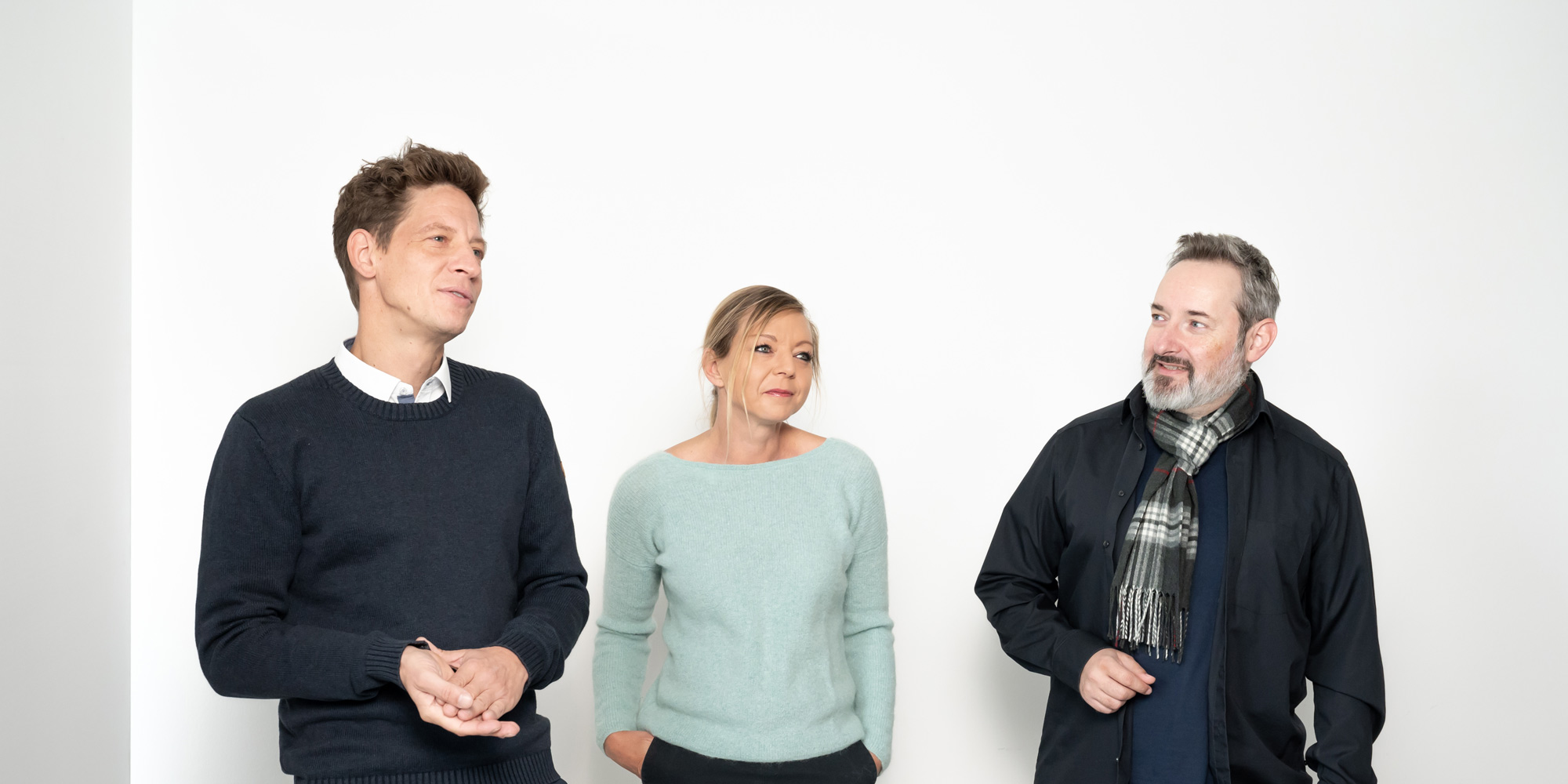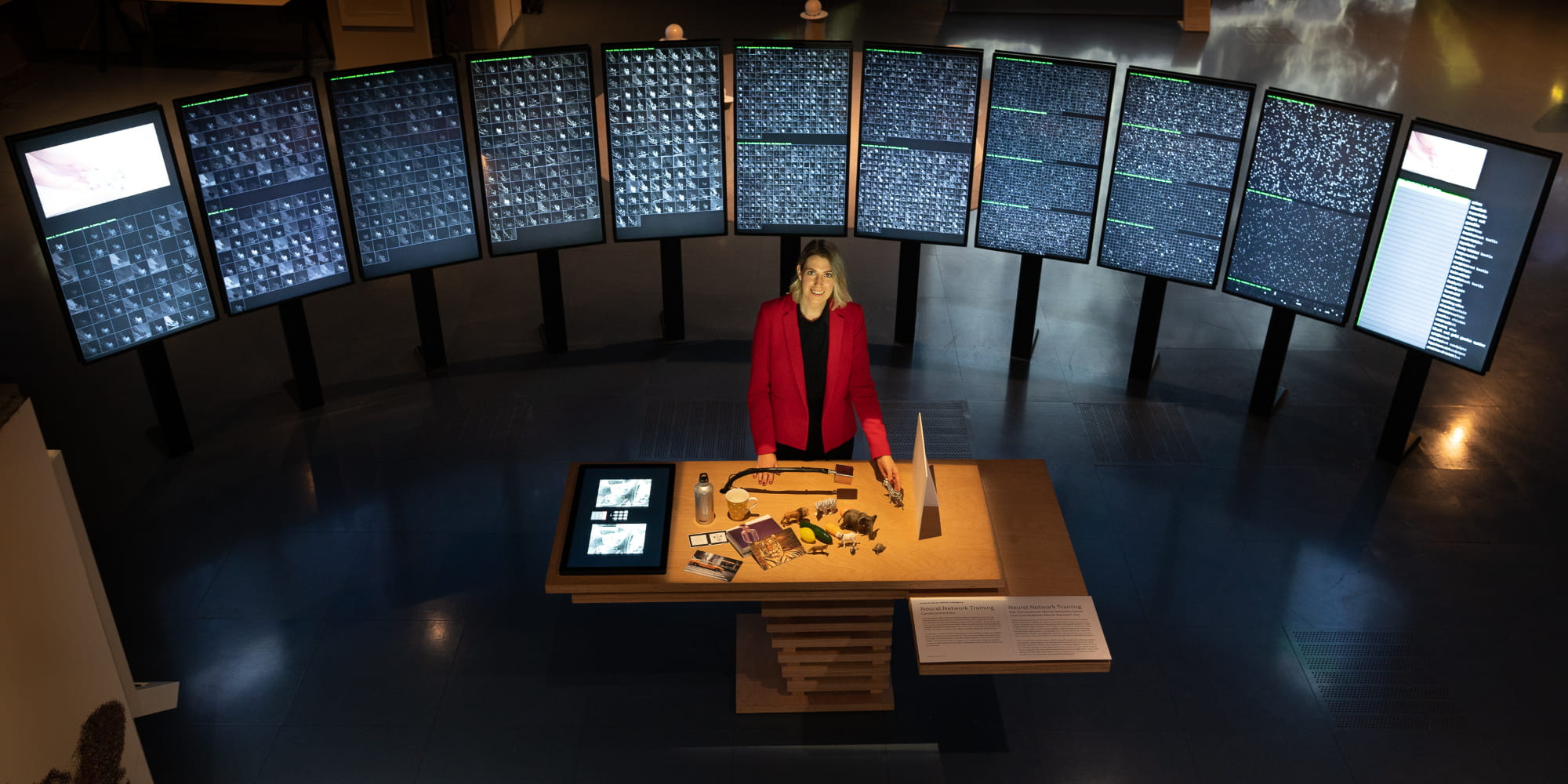
Christoph Kremer has studied law and has held various positions in the fields of cultural management, public-private partnerships and public relations. Since 2011, he is head of the Ars Electronica Center and is responsible for the museum’s science outreach strategy. On behalf of Ars Electronica, he develops transnational projects and acts as a consultant for museums worldwide.

Thomas Viehböck is an artist and Senior Project Manager of the Future Thinking School by Ars Electronica. After working as a music producer and in the IT sector, he joined the Ars Electronica Center in 2011. There he worked on the RoboLab and the VRLab, was involved in project management at Ars Electronica Solutions and has now been developing workshop and educational formats at the Future Thinking School since 2020.

After studying art history and political science, Sabine Leidlmair worked in several cultural institutions in Upper Austria. In 2009, her path led her to the Ars Electronica Center, where she gained experience in various departments such as cultural mediation and visitor services. In addition to her work as a works council member, she has been a member of the Future Thinking School team since February 2023.

Stefan Czerny studied plastics and environmental technology at the TGM Vienna and biology at the University of Vienna. He worked at the Natural History Museum for 15 years, where he was most recently head of the “Events” department. As a qualified trainer for visitor and customer interactions in museum operations, he worked at the Natural History Museum as well as the Kunsthistorisches Museum and the Weltmuseum. He is a member of the Future Thinking School team since 2023.
Future Thinking
New technologies such as AI, machine learning, augmented reality and robotics are constantly bringing changes to our working world and economy. The rapid developments within our digital working environments place diverse demands on managers and teams. In companies and organizations, therefore, more than technical skills and know-how are in demand. In the Future Thinking School, participants explore the digital transformation from different perspectives. This is where they encounter specific challenges and develop their own future skills.
External Lecturers

Dr Klaus Engel, who holds a degree in computer science and a doctorate in natural sciences, is Principal Key Expert for Visualization in the Strategy and Innovation department. In 2016, he was awarded the Siemens AG “Inventor of the Year” award for the development of cinematic rendering – which he played a key role in shaping from the proof of concept to the first prototype.

Prim. Prof. Dr. Franz Fellner is the head of the Central Radiology Institute at the Kepler University Hospital in Linz and also a specialist in virtual anatomy.

Horst Hörtner is a media artist, researcher and founding member of the Ars Electronica Futurelab. As an expert in the design of human-computer interaction, he also holds several patents in this field. He explores the nexus of art & science and lectures at numerous international conferences and universities.

Erika Mondria is an expert in the fields of mental research, psychology, neuroscience and the application of biometric measurement techniques (e.g. eye tracking, neurotechnologies, brain computer interfaces). She is currently working on her doctoral thesis on body oscillations, in addition to her teaching activities at universities and her role as supervisor for Brain Projects at Ars Electronica.

Markus Mooslechner is Executive Producer at Terra Mater Factual Studios, where he focuses on the development of new television formats. His expertise lies in filmmaking, storytelling, transformative technologies and posthumanism. Before joining TMFS, Markus worked as editor-in-chief and presenter of the television science program “Newton” at the Austrian Broadcasting Corporation ORF.

Professor Manuela Naveau, PhD is an artist and curator of Ars Electronica Linz. She teaches Critical Data at the University of Art and Design Linz. Her research investigates networks and knowledge in the context of computer-based artistic practice.

Ali Nikrang is Key Researcher & Artist at the Ars Electronica Futurelab. His expertise lies in the field of technology and art. His research deals with the interaction between humans and AI systems for creative tasks with a focus on music. As a classical musician and AI researcher, he has developed the research tool Ricercar, an AI-based system for collaborative composition of classical music. In 2020, he was honored with the Young Researcher Award of Upper Austria (RTF).

Hideaki Ogawa is a creative catalyst, artist, educator, curator and researcher in the field of art, technology and society. His particular research focus is Art Thinking, and he has conducted numerous innovation projects in the fields of art and science, art and industry, and art and society.

Maria Pfeifer’s thematic focus is on shaping futurology, art-inspired innovation and collaboration between art and science. She is interested in the potential social impact of future technologies beyond their direct areas of application.
Get in touch!
futurethinkingschool@ars.electronica.art



